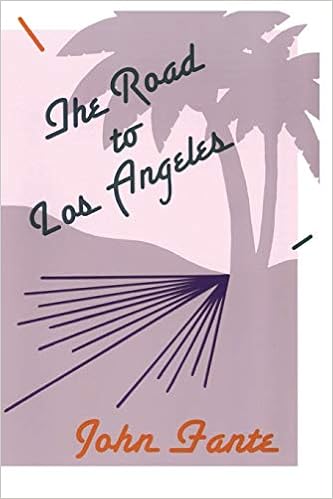I last read this book in my early twenties, during a Fante fix, when I first discovered him. Alas, outside of Ask the Dust and one of the novellas in West of Rome, his work proved disappointing to me, but three very good works is not a bad record really, in the scheme of of things.
Not much matches Ask the Dust for quality. This work, though, keeps much of what maked that book intriguing. It is another book in the Arturo Bandini saga, but unlike the two of the four, it keeps the narrative voice of Ask the Dust pretty firmly in place (if perhaps with less balance than that one). None of the Bandini novels are particularly consistent among each other with regard to the facts of Bandini's life. In Ask the Dust, Bandini's mom and dad are in Colorado, and he's alone and twenty in Los Angeles. In this book, his father is dead, and his mom and sister live near the beach on the California coast. But as with Ask the Dust, the narrator here is exceptionally bombastic. Everything is superb or awful to the utmost extreme. There is little middle ground with Bandini. And as in Ask the Dust, the narrator is a misogynist and a racist--here, even more disturbingly. He kills animals in cruel and purposeless ways for fun. One can kind of like the characters in Ask the Dust; it's much more difficult to like them in this book--but most especially Bandini.
The main character is a high-school dropout who on some level supports the family. One could feel for such a person whose life has been placed into one of sacrifice for future chances because of his father's death. He works dead-end jobs (cannery work is the central job in this book and is well described). There's a certain intelligence that seems to be going to waste.
And yet, Bandini is also a scoundrel. He steals from his family. He is a slacker at any job he takes and usually quickly loses. He claims to be a writer, but it's clear that he has little talent. He is disrespectful to all and deliberately hurtful. He gloms on to philosophy without really understanding it, the same way that he uses big words for the sake of using big words (sometimes not completely accurately). We see within him a certain maniacal will to power and faith in himself (countered with occasional self-hatred). He is not someone you would want to be friends with.
The empty bravado reminds me a lot of Holden Caulfield. What we really see is a boy who is forced too early to be a man--but who is ultimately still a boy. As his writing is immature, so is he.







No comments:
Post a Comment